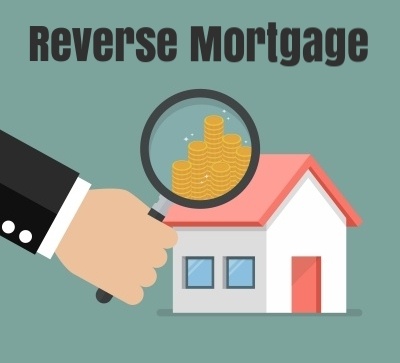 How do you end up in foreclosure because of a reverse mortgage? And is that a reverse foreclosure? What do you do if you inherit a house that has a reverse mortgage?
How do you end up in foreclosure because of a reverse mortgage? And is that a reverse foreclosure? What do you do if you inherit a house that has a reverse mortgage?
Before we answer those questions, let's first define what a traditional and reverse mortgage are.
Traditional Mortgage
In a traditional mortgage, you borrow a lump sum of money to purchase a home, then pay it back in monthly installments, plus interest, over time. You start out with little or no equity and build it as you pay down the balance of the loan. If you stop paying your mortgage, your home will be foreclosed for defaulting.
Reverse Mortgage
A reverse mortgage, also called Home Equity Conversion Mortgages (HECM), allows a homeowner to convert the equity they already have in their home into money they can spend without having to sell their home. Reverse mortgages are for people 62 years of age and older, and only for a home that is their primary residence.
With a reverse mortgage, the homeowner can receive a lump sum of money, monthly cash payments, or a line of credit. The money can be used for any purpose – home health care, groceries, a new roof, scratch-off tickets – whatever the borrower wants.
Paying Back a Reverse Mortgage
Of course, a reverse mortgage is a loan, and that money has to be paid back when one of the following triggering events occurs:
The borrower/s dies. When all the borrowers have died, the loan has to be repaid. Death doesn't wipe out mortgage debt. The executors of the estate are responsible for taking care of it. Since reverse mortgages are only for seniors, death is a common triggering event.
The property is sold or title is transferred. A reverse mortgage loan must be paid back when the title is transferred or the home is sold. Since a reverse mortgage requires equity, there should be enough proceeds from a sale to pay off the reverse mortgage. The seller can keep whatever is left over after all the liens are satisfied.
The borrower doesn't fulfill their responsibilities for the reverse mortgage. The reverse mortgage lender gives a homeowner a loan against the equity they have in their home, so anything that threatens that will be prohibited in the loan contract. Reverse mortgage borrowers are required to keep their home in good condition and pay property taxes and insurance.
Failure to pay property taxes can result in the taxing authority foreclosing to pay the tax bill. If the property falls into disrepair, then its value drops, and the equity is threatened. So, if the borrower fails to meet any of these terms, the lender can demand that the loan be repaid.
The home isn't the principal residence anymore. If the homeowner permanently moves out of the property, then the loan becomes due.
When The Reverse Mortgage Becomes Due
When the loan becomes due and payable for any of the above reasons, the borrower/s or their heirs have to pay back all of the money borrowed plus interest and fees.
If the loan becomes due and you don't want to keep the home, you can:
- Do nothing and let the home be foreclosed.
- Deed the property to the lender and let them sell it.
- Sell the home and use the proceeds to pay off the reverse mortgage loan. Again, there's supposed to be enough equity to sell the home and pay off the reverse mortgage, hopefully with some money left over.
If you want to keep the home, you have to pay off the reverse mortgage by:
- Giving the lender enough cash to satisfy the debt.
- Getting a traditional mortgage. Since reverse mortgages are taken out for a portion of the equity in a home, financing that amount with a traditional mortgage for a 15 or 30 year term could result in a very reasonable monthly payment.
Avoiding Foreclosure For Reverse Mortgage Default
If you're not able to pay back a reverse mortgage after it becomes due, the lender will be starting the foreclosure process.
If you've inherited a property that's encumbered by a reverse mortgage, defaulting on it won't affect your credit since it's not your loan, but the foreclosure of the home will be the same as in a traditional mortgage foreclosure. Unlike traditional mortgages, reverse mortgages aren't eligible for modification, so you won't be able to delay foreclosure by applying for a loan modification.
Depending on your situation, it may make sense to hire an attorney to defend you from foreclosure while you try to sell the home or apply for a traditional mortgage. An experienced lawyer could help you avoid a sale date and buy you time while you work toward one of these permanent solutions.
Image courtesy of Sira Anamwong at FreeDigitalPhotos.net










